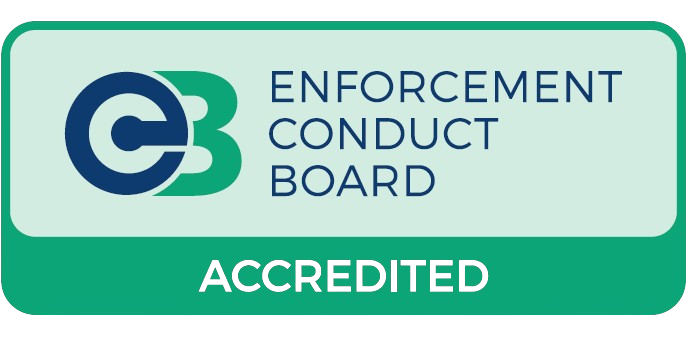Excluded occupier (England & Wales) – A Landlords Guide

| Jurisdiction | England & Wales |
| Legal basis | Protection from Eviction Act 1977; Housing Acts 1988 & 1996 |
| Typical categories | Lodgers; hostel residents; temporary/emergency placements; holiday lets |
| Notice required | Reasonable notice (often rent period) |
| Court order needed? | No (if peaceable re-entry is possible) |
| Protections | Protection from harassment & unlawful eviction |
An excluded occupier is a category of residential occupier in England and Wales who has very limited security of tenure. Unlike tenants with assured shorthold tenancies or licensees with basic protection, excluded occupiers can usually be evicted without a possession order from the court, provided that they are given reasonable notice and the landlord regains possession peaceably and without harassment or unlawful force. [1] [2]
The classification is significant for landlords, housing associations, local authorities and enforcement professionals, as mislabelling an occupier’s status can lead to criminal liability for unlawful eviction and civil damages. [3]
Legal framework
The rules concerning excluded occupiers derive from common law and several statutes:
- Protection from Eviction Act 1977 – provides protection against unlawful eviction and harassment, but certain categories of occupiers are excluded from its requirement that possession can only be regained with a court order. [1]
- Housing Act 1988 – sets out statutory tenancy regimes (e.g., assured and assured shorthold tenancies), from which excluded occupiers fall outside. [4]
- Housing Act 1996, Part VII – regulates local authority homelessness duties; people placed in temporary accommodation under these duties may, once the duty ends, become excluded occupiers. [5]
- Case law such as Street v Mountford [1985] AC 809 defines the distinction between a tenancy and a licence.
Categories of excluded occupier
According to Shelter, Citizens Advice, and professional enforcement guidance, typical categories include:
- Lodgers who share essential living space with a resident landlord, such as a kitchen or bathroom. [1]
- Temporary or emergency housing placements made by local authorities or housing associations, where the statutory homelessness duty has ended and the person no longer has basic protection. [5]
- Hostel residents or other licensees in accommodation not intended to provide security of tenure. [1]
- Short-stay or holiday-let occupiers, such as hotel guests or short-term lets (e.g., Airbnb) overstaying beyond their booking. [2]
- Individuals living rent-free with friends or family who own the property (context dependent). [2]
- Other statutory exclusions, such as some “no right to rent” cases where immigration legislation provides a 28-day notice procedure. [1]
Temporary accommodation and homelessness
A substantial proportion of excluded occupier cases arise from temporary accommodation provided to people at risk of homelessness.
- While the local authority’s homelessness duty continues, occupiers may have basic protection and require a possession order for eviction.
- Once the duty ends and the placement is discharged, the individual may be treated as an excluded occupier of that property, enabling lawful eviction without a court order, provided reasonable notice is given and re-entry is peaceable. [5]
This distinction requires careful documentation by councils and housing providers.
Rights of excluded occupiers
Although excluded occupiers have fewer rights than tenants, they retain certain protections:
- The right to reasonable notice before being required to leave. What is reasonable depends on factors such as the rent period, agreement terms, length of occupation, rent frequency, conduct, and circumstances. [1] [2]
- Protection from harassment and unlawful eviction under the Protection from Eviction Act 1977. Landlords cannot use force, threats, or deprivation of essential services. [1]
- The right to reasonable arrangements for the return of personal possessions left at the premises.
Eviction procedure
Notice
Landlords must serve “reasonable notice” to excluded occupiers. This usually corresponds to the rental period (e.g., one week if rent is weekly, one month if rent is monthly), unless a contract specifies otherwise. [1] Written notice is recommended even where not legally required; verbal notice may suffice for some periodic licences. For certain immigration cases, a 28-day prescribed notice applies. [1]
Recovery of possession
Once notice expires:
- If the occupier vacates, the landlord may change the locks.
- If the occupier remains, the landlord may attempt peaceable re-entry, such as changing locks when the property is unoccupied.
- If peaceable entry is not possible, landlords often instruct certificated enforcement agents experienced in negotiation and de-escalation. [5]
Prohibited conduct
- It is a criminal offence to use force to gain entry where someone inside objects (Criminal Law Act 1977).
- Threats, intimidation, or harassment can result in prosecution or civil claims. [1]
Determining status
Correctly distinguishing an excluded occupier from a licensee with basic protection or an assured shorthold tenant is critical. Misclassification may expose landlords to criminal prosecution and civil liability for unlawful eviction. [3]
Tools such as the Excluded Occupier Determination Tool assist landlords, councils, and solicitors in assessing whether the excluded route is legally appropriate or whether possession proceedings are indicated. [6]
Role of the police
Evictions of excluded occupiers are primarily a civil matter. Police officers may attend to prevent breaches of the peace but should not carry out or facilitate evictions themselves. Officers may, however, intervene if evidence of unlawful eviction or harassment arises. [5]
Risk management
Because excluded occupier evictions can involve vulnerable individuals or potentially confrontational situations, best practice includes:
- Detailed record-keeping of notices, service, attendance and any inventories.
- Use of certificated enforcement agents with training in negotiation, conflict management and de-escalation.
- Advance planning to ensure possession is regained peacefully and without harassment.
Controversies and criticisms
Critics note that excluded occupiers—particularly those discharged from temporary housing—have minimal legal protection, creating potential hardship for vulnerable groups. Advocacy organisations argue for stronger procedural safeguards, while landlord bodies emphasise practical mechanisms to recover property swiftly where occupiers have no right to remain. [2] [5]
See also
References
- Shelter Legal, Eviction of excluded occupiers (England). ↩︎ back
- Citizens Advice, Check your rights if you’re an excluded occupier . ↩︎ back
- UK Bailiffs, Excluded Occupier or AST? Why a Wrong Label Could Cost Landlords Fines or Prison . ↩︎ back
- Housing Act 1988 (c.50).
- UK Bailiffs, Eviction from Temporary Housing (Excluded Occupiers) ; Information for Police Officers: Temporary Housing Evictions .
- UK Bailiffs, Excluded Occupier Determination Tool .
This article provides general legal information and does not constitute legal advice. Seek specific advice for individual cases.
Excluded Occupier Evictions – Setting the Standard in Enforcement
Since introducing our Excluded Occupier Evictions service in December 2021, UK Bailiffs has been instructed 130 times, achieving 116 successful, peaceful, and professional outcomes.
We are trusted by:
- ✔ Housing Associations and Local Authorities
- ✔ Private Landlords with lodgers
- ✔ Short-Term Let and Airbnb Owners
While other companies have started to offer similar services, none can match the professionalism, compliance, knowledge and proven expertise that we bring to this highly specialised and sensitive area of enforcement.
From the outset, we have worked to refine and professionalise the process, ensuring every instruction is handled with the utmost care and in full compliance with legislation — protecting both landlord and tenant.
Our contribution goes beyond carrying out evictions. We produced the definitive online guide on excluded occupier evictions and further support the sector by regularly publishing practical resources for councils, landlords, police officers, and tenants — reflecting our commitment to best practice and transparency.
To assist landlords, councils, and housing professionals, we also created an online tool that helps determine whether an excluded occupier eviction can be used instead of applying for a possession order. This provides clarity at the earliest stage and ensures the right legal process is followed.
UK Bailiffs is recognised as the premier choice for excluded occupier evictions. Others may provide the service, but none come close to our experience, results, and authority in this field.
Need urgent help? Use the “Instruct UK Bailiffs” button and our Housing Team will review your case promptly.





